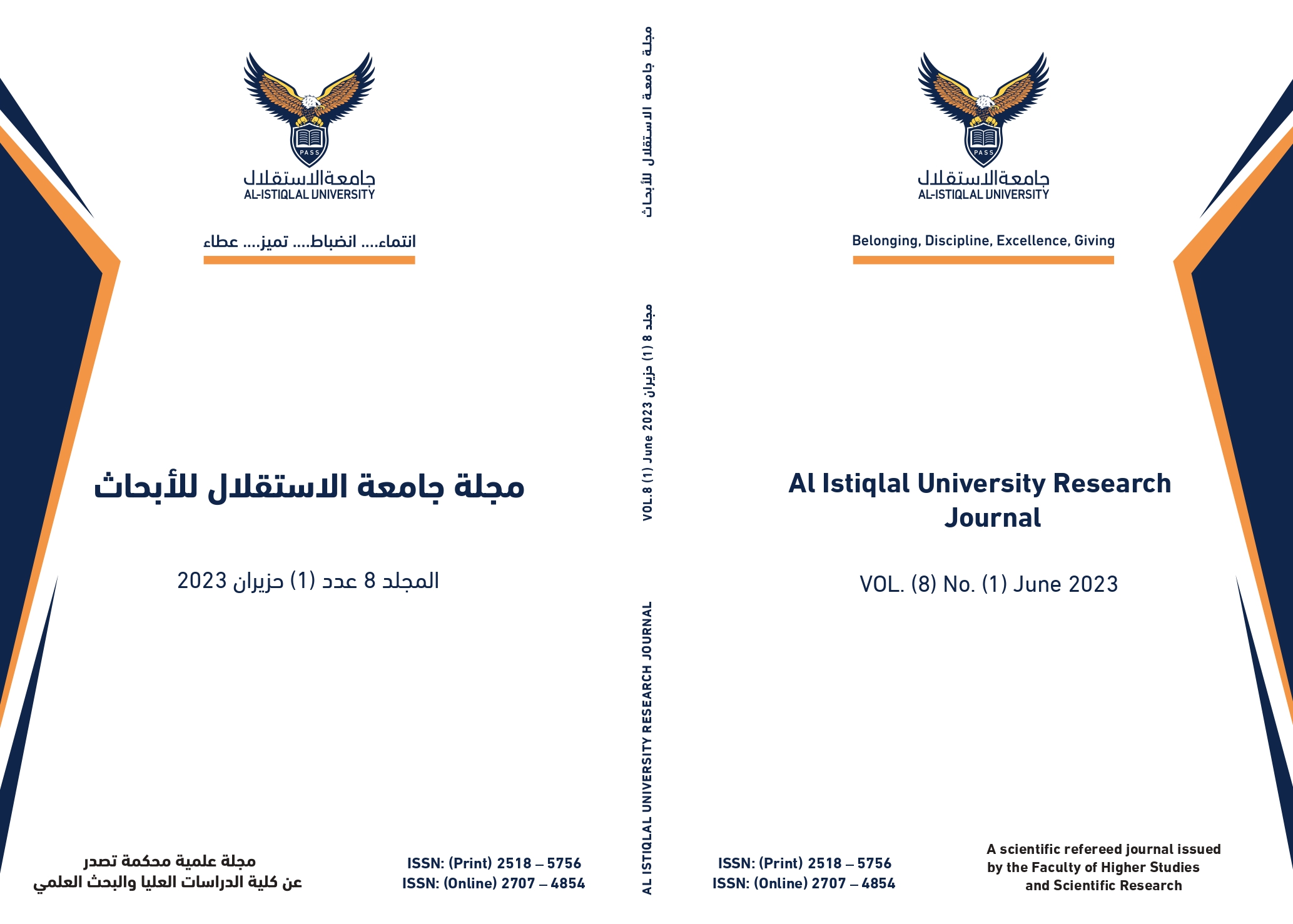Abstract
The study aimed to identify the relationship between communication skills (verbal and non-verbal) and the quality of services provided to citizens at Al-Karama crossings. Presented in terms of reliability, tangibility, empathy, safety, and responsiveness. Quantitative descriptive analytical approach was used, and the study population consisted of workers at the Palestinian Karama crossing with administrative positions of (180) male and female employees. The study used the questionnaire as a tool for collecting data from the study sample. And (108) questionnaires were retrieved for analysis and study, with a recovery rate of (88.5%), and the structural modeling program Smart PLS V3.3 was used to build the main model of the study and test its hypotheses.
The study had several results, the most important of which is the existence of a strong relationship between communication skills and the quality of services provided at Al-Karama Crossing, and that communication and communication skills explain (82.2%) of the discrepancy in the quality of services provided at Al-Karama Crossing. The results also showed that the workers at the Karama crossing had a high level of training in verbal and non-verbal communication skills, in addition to the fact that the quality of the services provided with its dimensions (sympathy, safety, tangibility, response, and reliability) were at high levels at the Karama crossing.
The study concluded with several recommendations, the most important of which is the level of crossing management, focusing more on developing verbal and nonverbal communication skills among workers at all levels, after verifying the impact of these skills on the quality of services provided to citizens, as well as working to enhance the role of modern technology in Reducing work pressure, especially in times of crowding, and using the most appropriate methods, especially for the elderly and sick, during these times.
The study also recommended at the general level the need to conduct more future studies that focus on independent factors may affect the quality of the services, and measure it according to the opinions of the service recipients and workers together.

This work is licensed under a Creative Commons Attribution-ShareAlike 4.0 International License.
Copyright (c) 2023 Al Istiqlal University Research Journal




